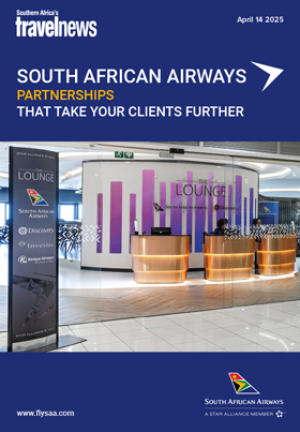In a recent Travel News poll, 74% of agents confirmed that baggage was still being lost and mishandled post-COVID.
And, according to the 2023 Baggage IT Insights study from air transport IT specialist SITA, last year saw an “exponential increase in the global mishandled baggage rate” of 74,7%, over the 2021 figure. This means 0,076 bags per 100 passengers were mishandled. Since the pandemic, the global rate of mishandled baggage rose from 0,35 bags/100 passengers in 2020 to 0,44 bags/100 passengers in 2021.
And the problem is ongoing. In June this year, luggage stacked up at Newark Liberty and Los Angeles International after storms played havoc with airline schedules in the northeast US. At Schiphol Amsterdam, about 10 000 bags were lost in one day in the same month this year, which KLM CEO Marjan Rintel had blamed on its outdated systems.
Bloomberg reports the story of Delta passenger Harley Hendrix who, returning to New York from Oslo in May, found that her suitcase, which contained an Alexander McQueen dress together with packs of cheese had been diverted to Copenhagen. She knew the bag was in Copenhagen as she had an AirTag inside, even though Delta Air Lines told her it was at JF Kennedy International and then Dallas. It took a week for Delta and European partner KLM to forward to the suitcase to New York, by when the cheese had spoiled the designer dress. The Bloomberg report said KLM offered her $109 (R2 045) in compensation.
In light of this type of incident, passengers have been arming themselves with Bluetooth devices, exposing a bag-handling system that is behind the customer.
According to Bloomberg, the airline industry is now working on incorporating trackers into existing systems, however creating a standard for interoperability between airlines and device manufacturers is a challenge. Senior Manager of global baggage operations at Iata, Getnet Taye said: “There is a huge benefit in complementing the airlines’ tracking data with the Bluetooth tracker information.”
Airport ground service provider Swissport International has appointed a ‘baggage tsar’ to look at ways to improve systems. Switzerland-based Chief People Officer, Chris Rayner, said it was also working with customers to improve digital tracking.
According to forbes.com, flight disruptions caused by staff shortages and supply chain issues continue to plague baggage systems. However, it calls attention to the fact that most bags are not really lost, but are eventually reunited with their owners, even though the time this takes may ruin a trip.
The risk of mishandled luggage drops when direct flights are booked, as about one-third of mishandling happens when transferring bags for a connecting fight – the more connecting flights and the more inter-airline transfers, the greater the risk.
About tackling the problem through technology, SITA Americas Head of Technology Sherry Stein said: “In the US market, the majority of the airlines have adopted RFID (radio frequency identification) tracking and the ability to provide that status information to their passengers at least on their domestic flights operating within the US. But when we start talking about transfers, where they have connections to potentially an international carrier, that’s where it gets a little wobbly.”
SITA Head of the Asia-Pacific region Sumesh Patel said: “The biggest challenge is how airlines and airports share information more transparently. I don’t think there is any shortcoming in terms of technology or solutions; the only problem is collaboration.”
To automatically identify baggage likely not to make the planned connecting flight, SITA has developed the WorldTracer Auto Reflight System, that rebooks bags on the next possible flight using the existing bag tag, while keeping the passenger informed. It estimates that this automation could save the industry up to $30 million (R563m) a year.















